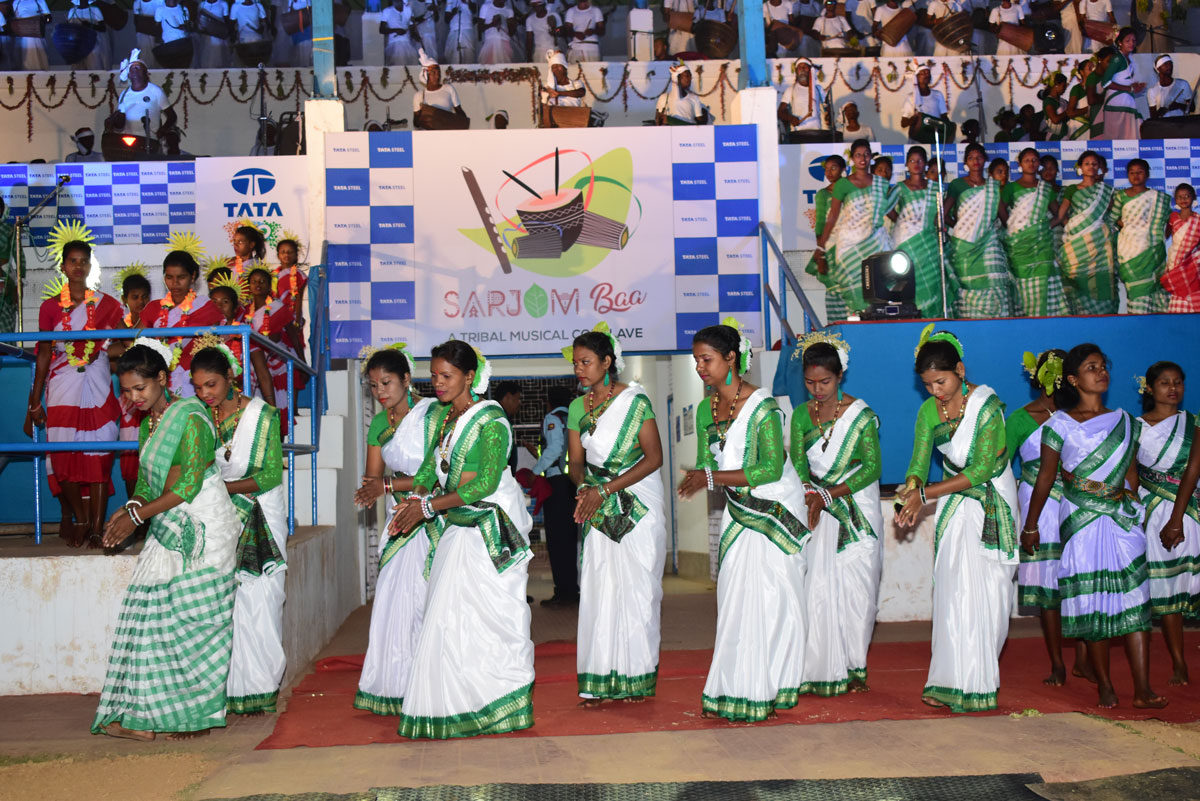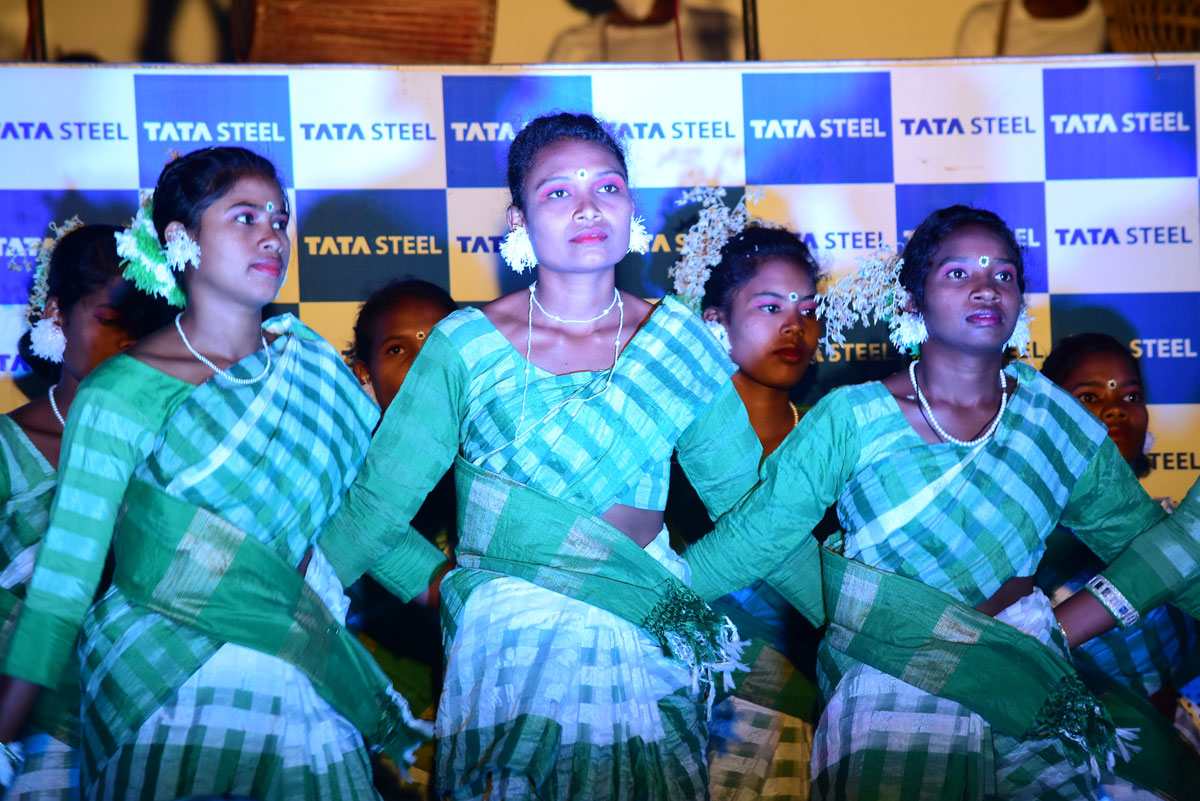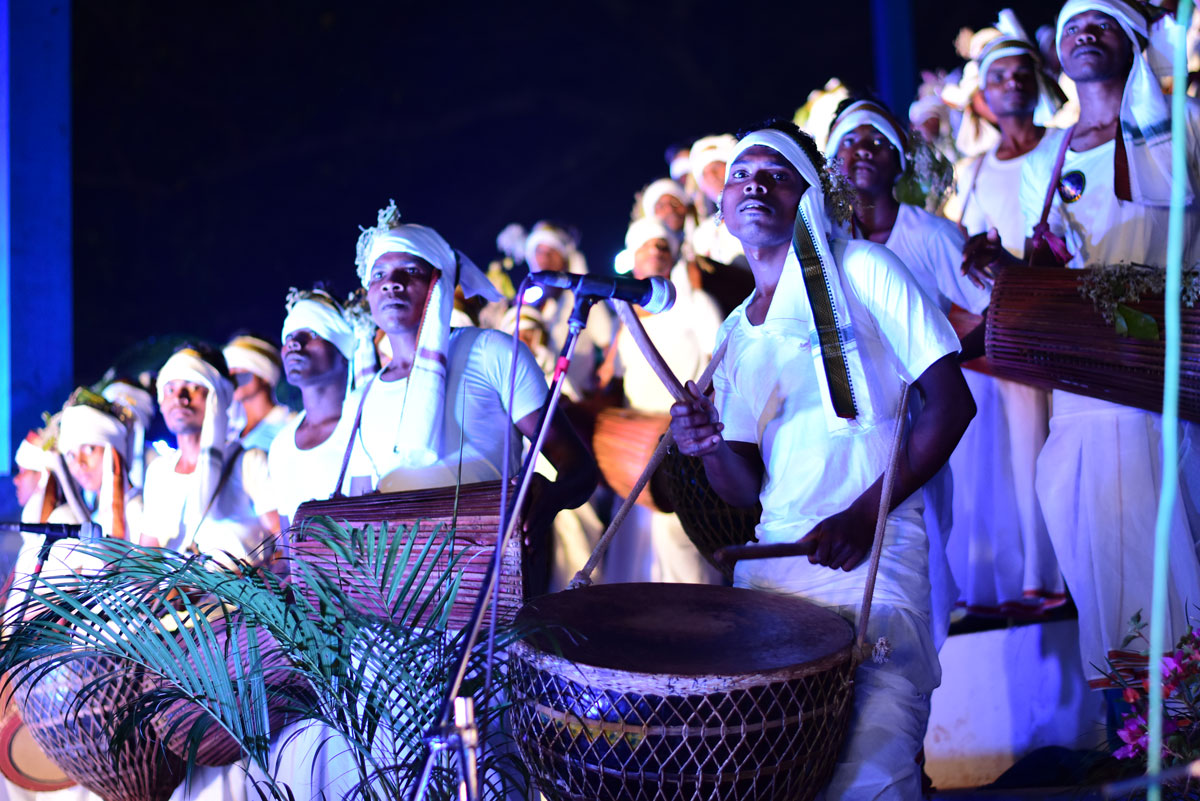Tata Steel's first-ever Tribal Musical Conclave 'Sarjom Baa' mesmerises Noamundi
Record participation of 465 tribal musicians and performing artists
Tata Steel’s Ore Mines and Quarries (OMQ) Division organised the first-ever Tribal Musical Conclave ‘Sarjom Baa’ (flowers of sal tree) at Sports Complex, Noamundi, on March 28, 2018. This unique initiative was organised to celebrate the cultural legacy of the tribal population, primarily of Kolhan region, thereby promoting tribal culture and music.
A total of 465 tribal musicians and performing artists came together to play a unified tribal music choreographed by Jitrei Hansda, a renowned theatre artist from Jharkhand. A mix of tribal instruments were used to create the music that enthralled the audience. The event was received with much enthusiasm by Adivasi Ho Samaj Mahasabha, Chaibasa and Adivasi Association, Noamundi. An exhibition of diverse tribal instruments like mandar, tirio, sakhwa, banam, ho buang, santhali dhak, khadra and nagara was also set-up at the venue to showcase the history connected with these instruments.
Speaking about the event, Mr Pankaj Satija, General Manager (OMQ), Tata Steel said: " The event is based on the underlying principles of sustainability to respect and promote cultures and customs of employees and communities. 'Sarjom Baa' is yet another initiative at Noamundi which will contribute to building a sustainable and inclusive society, present and future. I am glad to see a huge participation from the tribal community, supported by various tribal associations.”
Noamundi is well-known for its scenic beauty and rich tribal heritage. Noamundi Iron Mine has taken several initiatives like Jom Suim (adivasi new year celebration), Green Therapy (knowledge sharing platform on local healing practices), Prajatiya Khadyotsav (agro food diversity festival), Dostur-Ek Parampara and Jaiba Kala Vividhtha (art and biodiversity festival) in the past to promote and preserve the tribal culture. This is yet another initiative in similar direction.
About 5000 people in and around Noamundi jived to the tune of tribal music. Tata Steel has been creating unique platforms for the tribal community to celebrate, preserve and promote their culture. Tata Steel`s tribal conclave ‘Samvaad’ has been garnering a noteworthy acceptance among the tribal communities from different regions of India, for the last four years, at Jamshedpur. This is the first time that a music festival ‘Sarjom Baa’ has been organised in the tribal region with the tribal community under the aegis of ‘Samvaad’ at Noamundi.
About Tata Steel
Tata Steel Group is among the top global steel companies with an annual crude steel capacity of 27.5 million tonnes per annum (MTPA) as on March 31, 2017. It is a geographically-diversified steel producer, with operations in 26 countries and a commercial presence in over 50 countries. The Group recorded a consolidated turnover of US $18.12 billion (INR 117,420 crore) in FY17. Tata Steel Group is spread across five continents with an employee base of nearly 70,000 employees as of March 31, 2017. Tata Steel has been felicitated with several awards including the Deming Grand Prize for continuous improvement in 2012, Prime Minister’s Trophy for the best performing integrated steel plant for 2015-16, ‘Greenco Platinum Rating’ by CII Green Building Council for environmental performance at Jamshedpur Works (2016), ‘Best Place To Work’ in the core sector (steel, oil, power and minerals) by Business Today (2017), ‘World’s Most Ethical Company’ award from the Ethisphere Institute (2018), among several others.
Disclaimer
Statements in this press release describing the Company’s performance may be “forward looking statements” within the meaning of applicable securities laws and regulations. Actual results may differ materially from those directly or indirectly expressed, inferred or implied. Important factors that could make a difference to the Company’s operations include, among others, economic conditions affecting demand/ supply and price conditions in the domestic and overseas markets in which the Company operates, changes in or due to the environment, Government regulations, laws, statutes, judicial pronouncements and/ or other incidental factors.












